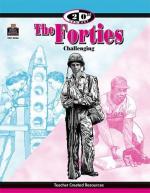|
This section contains 328 words (approx. 2 pages at 300 words per page) |

|
A Contested Issue.
In the 1940s the principle of academic freedom — that university teachers should be free to teach whatever their training and conscience command them to teach — was challenged. Several sensational academic freedom cases developed, signifying increasing political pressure on academia. Some cases were directly related to the volatile politics of the time, especially the anti-Communist hysteria of the late 1940s, but other cases reflected long-standing public suspicions of academia and of intellectuals, especially in terms of their sexual restraint and racial attitudes.
The Bertrand Russell Case.
As the decade opened, the Bertrand Russell case was the most sensational academic freedom dispute. Russell was an acclaimed British philosopher and mathematician scheduled to teach classes in logic and mathematics at the City College of New York. A vocal advocate of socialism and sexual permissiveness, Russell became a lightning rod for conservatives. Conservative newspapers denounced...
|
This section contains 328 words (approx. 2 pages at 300 words per page) |

|




